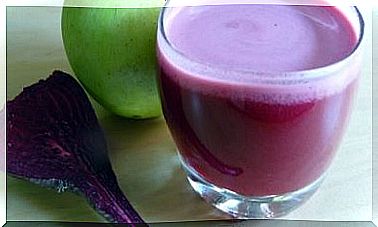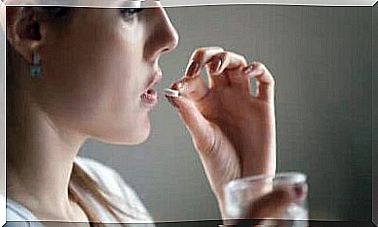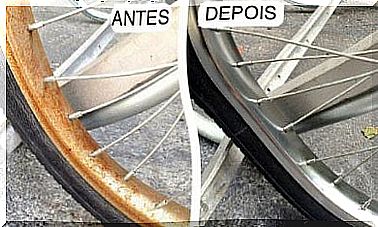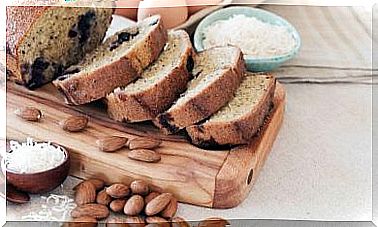Diet To Control Bad Cholesterol (LDL)

Have you discovered that you have a health problem and need to adopt a diet to control bad cholesterol? In that case, don’t wait too long. The sooner you improve your lifestyle habits, the better you’ll feel.
Next, we’ll talk more about the importance of adopting and maintaining a healthy diet and some aspects of its role in controlling cholesterol levels. Don’t miss it!
Food, cholesterol and health
The accumulation of bad cholesterol (LDL) in the arteries is one of the main risk factors for cardiovascular disease. Although the problem can go asymptomatically, its lack of control can trigger serious consequences.
Although diet has a limited influence on cholesterol levels, correcting some habits can slightly improve the lipid profile.
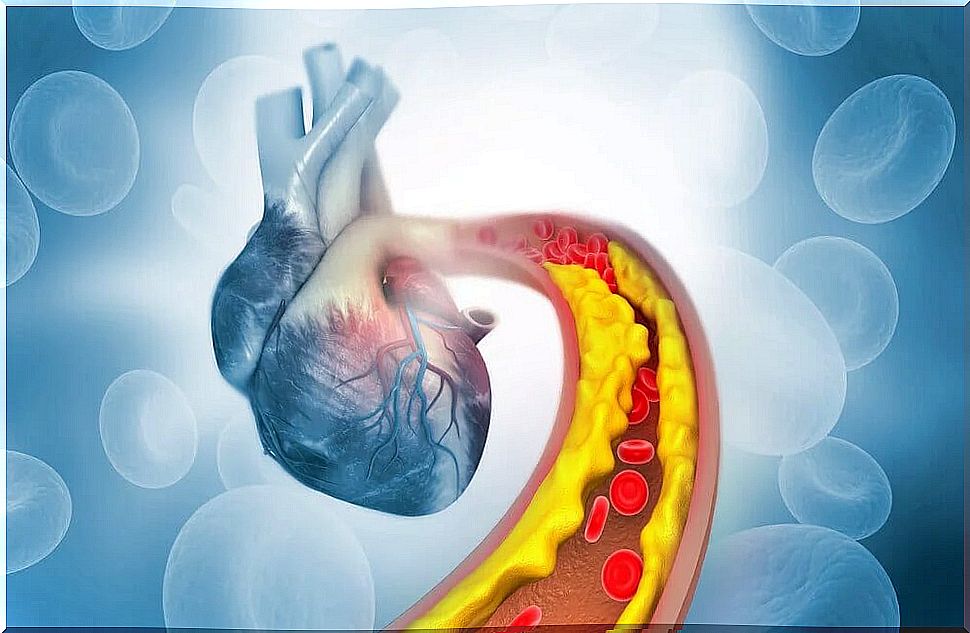
It is believed that a person has high cholesterol when, when measuring their levels, they get results equal to or greater than 200 mg/dl. The disturbance is more alarming when values are greater than 250 mg/dl.
However, these values have been questioned. Today, experts attribute cardiovascular risk to the LDL lipoprotein oxidation process, not total cholesterol.
Cholesterol level is largely genetically determined. However, lifestyle habits can change these levels slightly.
What is cholesterol?
Cholesterol is a lipoprotein that carries nutrients in the blood. It is part of cell membranes and is the precursor of some hormones, bile acids, vitamin D and other essential substances for the body.
It comes mainly from the synthesis carried out by organs such as the liver. It is also absorbed from the intestine through food consumption.
However, excess cholesterol can lead to its accumulation in artery walls. Thus, it triggers an inflammatory reaction that facilitates the growth of the so-called “atheroma plaques”, responsible for disorders such as atherosclerosis.
However, more recent studies question this relationship. In fact, an article published in 2017 links LDL cholesterol oxidation with increased cardiovascular risk, not the lipid profile per se.
This oxidation process, among other things, is linked to:
- Myocardial infarction.
- Leakage.
- Liver and kidney diseases.
Risk factors
There are many cases of high cholesterol that have genetic origins. In these cases, the disorder is suffered by several members of the same family or transmitted from parent to child. In these people, the body “manufactures” more cholesterol than normal.
Other causes related to variations in the lipid profile are:
- Bad eating habits (diet rich in saturated fats and sugars)
- obesity or diabetes
- smoking
- Sedentary lifestyle
Diet to control cholesterol
In order to design a good diet to control cholesterol, it is important to consider some basic factors:
- Age of the patient.
- Weight and possible metabolic disorders.
- State of health (if you suffer from other illnesses).
Considering all this, a diet to control LDL cholesterol (popularly known as bad cholesterol) must be based on varied and fresh foods, whose nutrients meet the body’s requirements.
In this regard, your doctor should investigate the reasons for your high cholesterol levels and propose a therapy and diet to be followed.
Foods to avoid
- Sugar and candies.
- Bakery products.
- Ultra-processed products.
- Pre-cooked or fried food.
- Food products made with hydrogenated oils or fats.
Recommended foods for lowering cholesterol
- Fruits and vegetables.
- Lean meat (chicken or turkey).
- Vegetables (beans, peas, lentils).
- Sources of omega 3 or blue fish.
- Whole grains (oats, barley, rice)
- Unsaturated fats (olive oil, avocado oil, seeds and nuts).
Both fiber and omega-3 fatty acids present in blue fish help control the lipid profile, according to a study published in the journal Archives of Medical Research.
Recommended menu to regulate cholesterol

There are many menus for people who need to regulate their LDL cholesterol levels. This, as we have already mentioned, can vary depending on the needs of each one.
However, taking into account the basic recommendations, below we want to propose a balanced and delicious menu.
Breakfast
- Oat flakes with skim milk and fruit.
- To accompany, black brewed coffee.
- Whole wheat bread with extra virgin olive oil and tomato slices.
Middle of the morning
- Small sandwich with wholemeal bread and canned sardines.
- Pickles (cucumbers or similar).
- Roasted oilseeds (no frying and no salt).
Lunch
- Lentil and brown rice salad.
- Canned horse mackerel.
- For dessert, a yogurt.
Lunch
- For an afternoon snack, a natural low-fat yogurt with oilseeds or seeds.
Dinner
- Sauteed or steamed vegetables.
- Vegetable burger (lentils, quinoa or beans).
- Small portion of peach (optional).
Other habits to control bad cholesterol (LDL)

Food is essential in controlling cholesterol. However, it is essential to take into account other habits that complement its effects on the body.
Physical exercise
Regular exercise prevents and combats hypercholesterolemia. Its daily practice, or at least 3 times a week, reduces the effects of sedentary lifestyle.
- First, walking, jogging, or doing any cardiovascular activity promotes LDL lipoprotein lowering.
- On the other hand, it is ideal to combine these exercises with strength training.
avoid cigarettes
Cigarette smoking does not increase cholesterol by itself. However, it affects the synthesis of HDL (popularly known as good cholesterol). For this reason, it interferes with the processes that help keep this condition under control.
Lose weight
Good nutrition and exercise are the keys to achieving a healthy weight. Therefore, it is essential to be disciplined and constant in dealing with the effects of being overweight and obese.
Healthy Eating and Exercise to Lower Cholesterol
Have you been diagnosed with high cholesterol? Be careful! Even if you don’t feel obvious discomfort, several related illnesses can be affecting your body. Try to follow all the recommendations to control the problem.
For this, see your doctor and start a diet to control cholesterol. Also consider exercising regularly. This will help improve your health and make you feel more vital.





